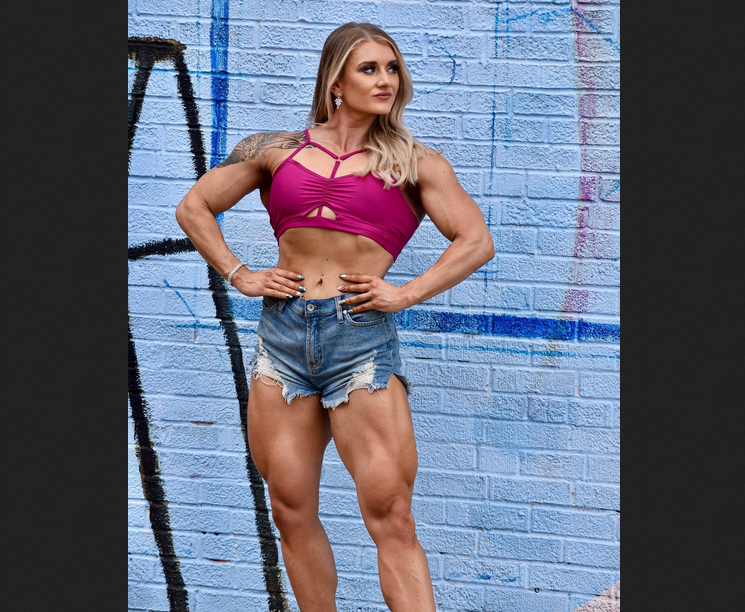Bodybuilding is not just about lifting weights; it’s also about adhering to a structured diet that complements your training regimen. Whether you are a man or a woman, understanding the fundamentals of a bodybuilding diet can significantly enhance your muscle growth and overall fitness.
Understanding Macronutrients
Proteins
Protein is the cornerstone of a bodybuilding diet. It repairs and builds muscle tissues that are broken down during intense workouts. Aim for 1.2 to 2.2 grams of protein per kilogram of body weight daily. Sources include lean meats, eggs, dairy products, legumes, and protein supplements.
Carbohydrates
Carbohydrates are the primary source of energy. They fuel your workouts and aid in recovery. Include complex carbs like whole grains, oats, brown rice, and sweet potatoes in your diet. Balance your intake to ensure sustained energy levels throughout the day.
Fats
Healthy fats are essential for hormone production, including testosterone, which is crucial for muscle growth. Include sources of unsaturated fats like avocados, nuts, seeds, and olive oil. Aim for fats to comprise about 20-30% of your total daily caloric intake.
Meal Timing and Frequency
Pre-Workout Nutrition
Consume a balanced meal rich in protein and carbohydrates about 2-3 hours before your workout. This meal should provide the necessary energy and amino acids to optimize performance and prevent muscle breakdown.
Post-Workout Nutrition
After a workout, focus on replenishing glycogen stores and repairing muscle tissue. A meal with a good mix of protein and carbs within 30 minutes to an hour post-exercise is ideal. This can include a protein shake with a banana or chicken with rice.
Hydration
Staying hydrated is crucial for optimal performance and recovery. Aim for at least 3-4 liters of water daily. During intense training sessions, consider electrolyte-rich drinks to replace minerals lost through sweat.
Supplements
Protein Supplements
Whey protein is a popular choice due to its quick absorption rate, making it ideal post-workout. Plant-based proteins are also effective for those who prefer non-dairy options.
Creatine
Creatine is well-researched and known to enhance strength and muscle mass. It helps increase ATP production, providing more energy for high-intensity workouts.
BCAAs
Branched-Chain Amino Acids (BCAAs) help in reducing muscle soreness and promoting recovery. They can be particularly beneficial during prolonged workouts or when training in a fasted state.
A well-rounded bodybuilding diet tailored to your specific needs can greatly impact your results. By focusing on the right balance of macronutrients, meal timing, hydration, and supplementation, both men and women can achieve their fitness goals and build a stronger, healthier physique.
Building Muscle, Shedding Fat
Whether you're a man or woman, a bodybuilding diet has the same core purpose: providing the nutrients your body needs to build muscle and shed excess fat. This is achieved through a combination of what you eat and your exercise routine.
Macronutrients: Your Body's Fuel
The key players in your bodybuilding diet are macronutrients: protein, carbohydrates, and fats. Each plays a crucial role:
- Protein: The building block of muscle. Aim for 0.8-1 gram of protein per pound of bodyweight daily. Lean meats, fish, eggs, and Greek yogurt are all excellent sources.
- Carbohydrates: Provide energy to fuel your workouts. Complex carbs like brown rice, sweet potatoes, and whole grains are preferred for sustained energy.
- Healthy Fats: Keep you feeling full and support hormone health. Avocados, nuts, seeds, and fatty fish are great choices.
Calorie Control: Bulking or Cutting
Your total calorie intake depends on your goals. Are you trying to bulk up muscle (bulking phase) or cut fat (cutting phase)?
- Bulking: Consume a slight calorie surplus (eat more calories than you burn) to promote muscle growth.
- Cutting: Eat in a calorie deficit (burn more calories than you consume) to reveal underlying muscle definition.
Frequency and Portion Control
Many bodybuilders spread their meals throughout the day, eating 4-6 smaller meals to keep their metabolism going and prevent overeating. Portion control is also important to ensure you're not exceeding your calorie goals.
Stay Hydrated
Water is essential for all bodily functions, including muscle recovery. Aim for 1.5-2 gallons of water daily.
Remember, this is a general guideline. Consulting a registered dietitian or certified nutritionist can help create a personalized plan that factors in your specific needs and goals.





































No comments:
Post a Comment